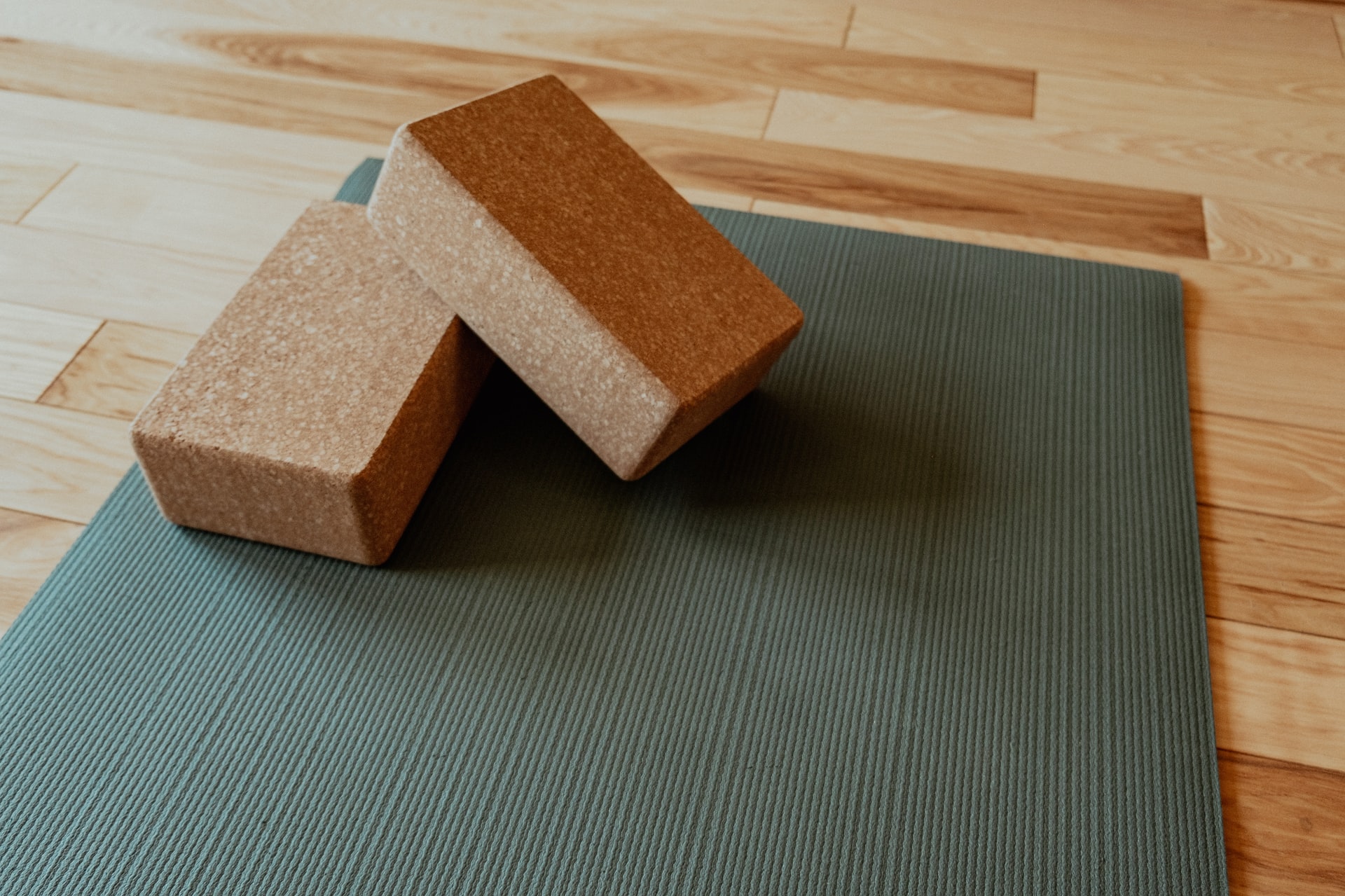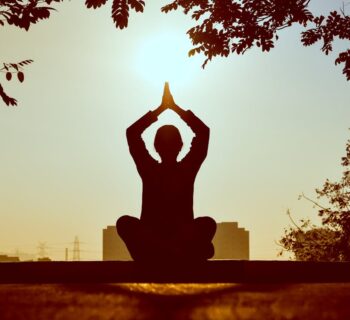It’s no longer considered ok to make fun of women, or the LGBTQ community, or other social or cultural identities like Black people or people of Chinese descent. So why is making fun of the Indian accent ok? Is it considered lighthearted fun, or just a joke?
I am the child of immigrant parents. My parents were born and raised in Sri Lanka and my father’s extended family is from South India. We came to the US when I was 9 months old. As a result, I don’t have an accent. Or rather, I have an American accent.
I am also a yoga teacher in the Ashtanga method and have been practicing solely Ashtanga yoga for the past 12 years. I love the Ashtanga system and method of teaching, however, I don’t love the habit many teachers have of imitating the Indian accent. In fact, I find this mimicry confusing, unnerving and frankly offensive.
Ashtanga is a very traditional system, which originated in Mysore India from Krishnamacharya and Sri. K. Patthabi Jois. The Jois family has developed a credentialing system of authorizing teachers who are able to teach this method. For some reason, many of these “Authorized” teachers have adopted mimicking the accent, mannerisms, and intonation of Patthabi Jois as part of their teaching and in some cases they have adopted parts of the Indian culture as their lifestyle.
I have been conditioned to accept this habit of imitating the Indian accent for the past 53 years of my life. White people think it’s funny, or charming perhaps, while I was raised to grow a “thicker skin” and ignore it. My parents would tell me that people were being “silly” and I shouldn’t let it bother me. But, after the murder of George Floyd in the summer of 2020, the ensuing wave of protests against systemic racism and the treatment of Black and brown people in this country, and spending almost every day in the summer of 2020 marching in protests with my adult daughters for justice for George Floyd, Breonna Taylor and the countless others killed because of their race, I can’t sit back and accept this seemingly benign habit any longer. There is no reason for Ashtanga teachers to put on a false accent to somehow accentuate their teaching. It doesn’t add anything to the student’s understanding of the practice, or the posture.
What it does is make a mockery of the Indian people.
The first weekend of February, 2022, I attended a much anticipated Ashtanga workshop. Since I have been a longtime fan of this popular Ashtanga teacher, I encouraged all of my students to attend as well. Several of them took my advice and registered for the workshop. As we started the Mysore portion of the workshop I could hear this teacher go around the room adjusting people and giving them instruction. I was shocked to hear that she was imitating an Indian accent! I felt myself bristle and thought to myself, is this really happening? Haven’t these teachers learned not to do this? Somehow, in the absence of in-person instruction during the pandemic, I’d forgotten that Ashtanga teachers would commonly pepper this type of speech into their instruction.
Several days after the workshop I still couldn’t shake how upset this behavior made me. One of my students even reached out to me to express some concern and ask my thoughts. I responded by explaining that I didn’t not agree with how the accent was used
and was embarrassed for having recommended the workshop in the first place. The more I sat with it the more I decided I had to act: I called the teacher personally to explain how offensive I found her imitation of Patthabi Jois. She was extremely apologetic and stated that she did it out of reverence or homage to her teacher. She maintained it was a form of “cultural appreciation.” She never dreamt it was offensive in any way. She mentioned that she liked to speak in the voice of her teacher to honor him. I found her response very confusing, because it doesn’t actually improve her teaching, or imbue it with any additional information to help a student learn. For example, saying, “backbend, you do,” while mimicking the Indian “head wobble” doesn’t actually help a student do a backbend. Clearly it’s done with the intention of lightening the mood and making some students laugh, but I don’t find it funny, I find it disrespectful. I believe this to be offensive and racist behavior.
After speaking with me, this teacher also wrote an apology to my students who are of South Asian descent. I have shared it with them. I think this was very magnanimous of her and she did it of her own volition. But, it still leaves me confused. Why is this considered ok in the first place? I did some research and apparently, Indians are one of the last acceptable groups of people to poke fun at. It’s no longer considered ok to make fun of women, or the LGBTQ community, or other social or cultural identities like Black people or people of Chinese descent. So why is making fun of the Indian accent ok? Is it considered lighthearted fun, or just a joke? Comedian Hari Kondabolu asserts in his documentary, THE PROBLEM with Apu, “It’s not a joke, it’s racist.”
Graphics Coordinator, Sharada Vishwanath states, ``When people imitate accents, they often include stigmas about the race, ethnicity or culture which they are mocking.” I believe this to be the case here.
Cultural appropriation is defined by Britannica.com as “when members of a majority group adopt cultural elements of a minority group in an exploitative, disrespectful, or stereotypical way.” I believe this is exactly what is happening when Ashtanga teachers mimic the way Indians speak when they teach.
Yoga is something that is already culturally appropriated. It is an ancient Indian practice that the Western world has adopted, co-opted, and converted into a multi-million dollar industry. Yoga teachers claim they are not appropriating the culture, rather they are appreciating the culture. Yoga teachers claim to have a deep reverence for Indian culture and the origins of yoga. But, non-Indian and non-South-Asian teachers are making a living and profiting from something that is not their culture, and therefore not theirs to own. It is an example of the white dominant culture taking something from a minority culture and branding it as their own which is, by definition, Appropriation.
Cultural appreciation is when someone seeks to understand and learn about another culture in an effort to broaden their perspective and connect with others cross-culturally. Appropriation, on the other hand, is simply taking one aspect of a culture that is not your own and using it for your own personal interest.
– Kelsey Holmes, Greenheart International
Ashtanga teachers specifically claim to have this great reverence for Indian culture in general. They perform Hindu rituals, and dress as if they are native Indians in a Sari or Punjabi leggings. They wear Bindis and have henna artists at their gatherings. This cultural appropriation is problematic to say the least. But I have to draw the line at the mimicry of the voice of the teacher.
As Yoga teachers, I think we need to look at how we are teaching yoga and see if we need to change the way we transmit information to our students. Take a look at how you speak and pass on the lineage of Ashtanga. Pay attention to see if you are perpetuating a cycle of cultural appropriation or mimicry simply because that is how you were taught. Here are some tips to help you analyze your teaching style.
1. Examine your own culture. Meditate on how you speak and learn. Would you be offended if someone mimicked your culture in order to teach? Are you doing something for your own ego, or to get a laugh? Will it really help people learn?
2. Consider the context and how the material you are sharing can help your student learn. Does telling a story about Pattahabi Jois need to be told in his vernacular? Is the same information able to be conveyed in your own words?
3. “Be impeccable with your word” – The Four Agreements: A Practical Guide to Personal Freedom by Don Miguel Ruiz
a. Does what you are saying help a student learn? Impeccable meaning the intention behind what you are saying. Typically in a Mysore room there is very little speaking. So what you do say should be intentional towards helping a student with their practice. Ask yourself, does making a joke serve you, the teacher, or your student?
Works cited and referenced:
1. The Problem with Apu. Directed by Michael Melamedoff, Avalon Media November, 19, 2017
2. Jaini, Prav, “YES, MOCKING INDIAN ACCENTS IS RACIST,” Socialworker.org, 2017
https://socialistworker.org/2017/11/22/yes-mocking-indian-accents-is-racist
3. Vishvanath, Sharada. “Mocking accents spreads unjust, offensive stereotypes,”arhsharbinger.com, May 29, 2019,
Mocking accents spreads unjust, offensive stereotypes – THE ALGONQUIN HARBINGER.
4. Brittanica.com, “What is cultural appropriation?” https://www.britannica.com/story/what-is-cultural-appropriation
5. Holmes, Kelsey,“Cultural Appreciation vs. Cultural Appropriation: Why it Matters” 2017 Cultural Appreciation vs. Cultural Appropriation: Why it Matters | Greenheart International
6. Ruiz, Don Miguel, “The Four Agreements: A Practical Guide to Personal Freedom (A Toltec Wisdom Book), Amber-Allen Publishing, Incorporated (July 10, 2018)
By Anusha Moore

Anusha Moore discovered yoga 20 years ago while searching for a physical complement to her ballet training. She wanted something that would enhance her technique and strengthen her body. Ashtanga Yoga was a natural fit; the discipline and dedication she forged in years of dance found a new home in developing her daily practice. After her first class, she realized Yoga presented so much more than simply a way to cross-train; she felt the spiritual awakening that comes with setting an intention for the practice in every class.
Anusha received her 200-hour teacher training from At One Yoga in 2004 and completed her 300-hour certification with Dave and Cheryl Oliver in 2012. Anusha is the mother of two adult daughters who humble her every day with their wisdom and fierce independence.
Anusha Moore is an Ashtanga Yoga teacher based in Phoenix, Arizona. She teaches daily Mysore-style classes and leads a weekly primary series class via Zoom. She can be found on Facebook at Phoenix Ashtanga Studies and on Instagram @phoenix_ashtanga_studies. All are
welcome to study with her and the community she practices with.
Photo by Samantha Sheppard on Unsplash










